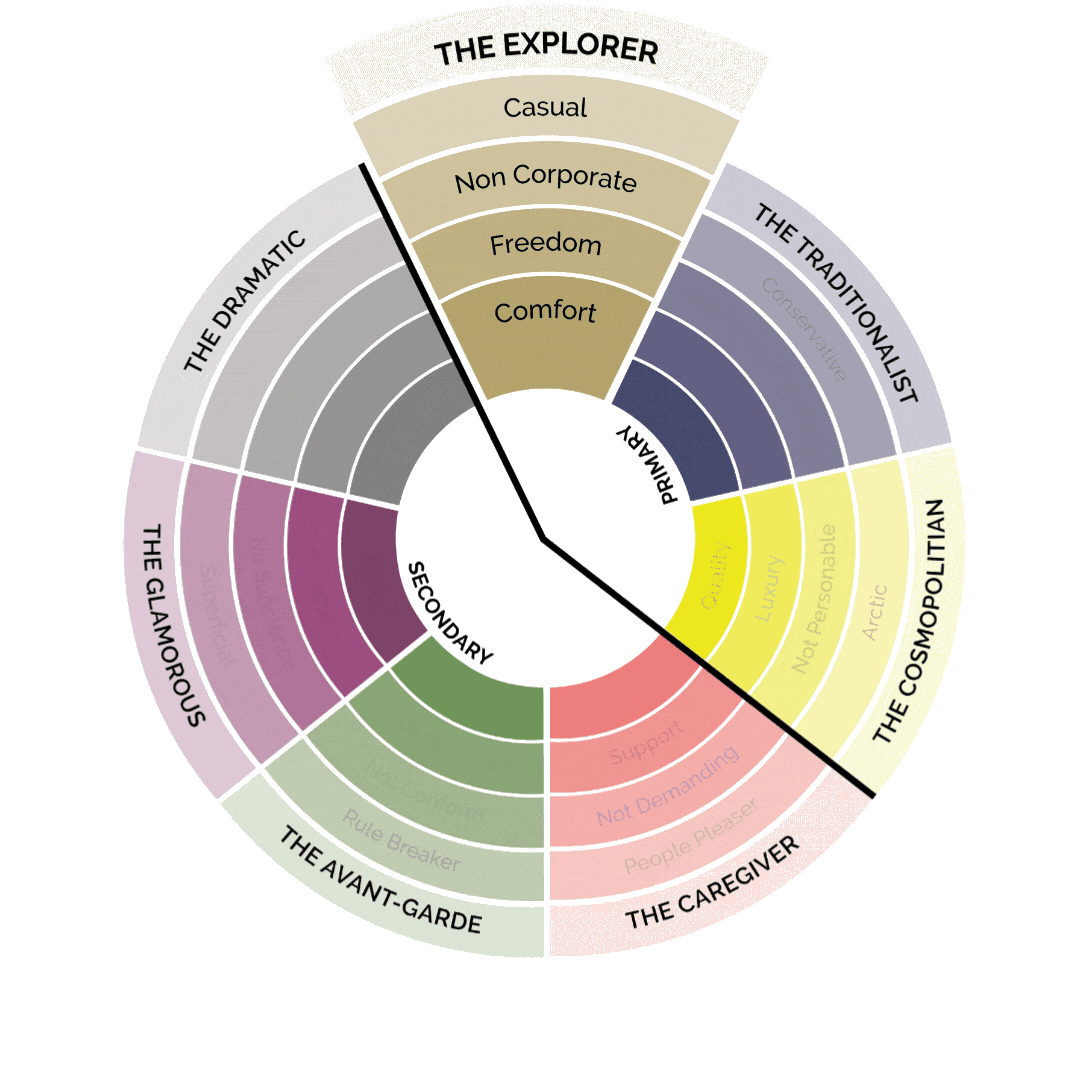In a World Obsessed with Numbers, True Value Remains Priceless
In the dynamic world of business, a silent struggle often unfolds in the corridors of corporate power —the battle of our “Value vs. Price.” This struggle becomes most obvious when professionals seek promotions or engage in salary negotiations, where their worth is often weighed against the scales of cost and compensation. In these moments, the intricate dance between the perceived value of one’s contributions, and the price or salary offered, becomes a pivotal factor.At the heart of this struggle lies a fundamental question:
How does one ensure that their true value is recognized and adequately compensated?
The answer is multifaceted, involving more than just showcasing accomplishments or tallying up skills. It requires a deep understanding of how value is perceived within your organization (and beyond) – a perception influenced by a variety of factors.
Yet, the challenge doesn’t end with understanding this perception of value. There is also the critical task of communicating this value effectively. It’s not just about what you bring to the table, but also how you present it.
The Value vs. Price Dilemma: Understanding Your Professional Worth in the business context
Value, in its richest form, embodies a blend of tangible and intangible elements that an individual brings to an organization. It’s not just about completing tasks or meeting objectives; it’s about the unique mix of skills, insights, and experiences that contribute to the broader goals and vision of the company you work for.
At its core, value in a business setting is about impact. It’s the difference made through one’s work, whether in enhancing efficiency, driving innovation, fostering team spirit, or contributing to a positive workplace culture. For example,
- a salesperson’s value isn’t solely measured by the revenue they generate; it also encompasses their ability to forge lasting client relationships, mentor junior colleagues, and contribute to the development of new sales strategies.
- a nurse’s value extends beyond their clinical care duties. It includes their empathy and ability to provide emotional support to patients and families, their contribution to improving patient care protocols, and their role in mentoring new staff members.
- a hotel manager’s value isn’t just about occupancy rates or smooth operations. It also encompasses their ability to create a welcoming and memorable experience for guests, their initiatives in staff training to enhance service quality, and their innovative ideas for marketing campaigns or community engagement activities that elevate the hotel’s reputation and guest loyalty.
- a teacher’s value isn’t only measured by test scores. It includes their ability to inspire and motivate students, their involvement in developing new educational programs or extracurricular activities, and their dedication to creating an inclusive and supportive classroom environment that fosters student well-being and lifelong learning.
- an accountant’s value isn’t solely quantified by accurate financial reporting. It also includes their ability to provide strategic financial advice to management, their initiatives in implementing cost-saving measures, and their expertise in regulatory compliance, which can protect the company from financial risks and legal challenges.
In each of these examples, professionals contribute value that goes well beyond their primary job functions, encompassing a range of skills and actions that benefit their organization, colleagues, and clients or patients in significant ways.
For you, as a professional, value is a blend of both tangible results and intangible qualities that you bring to your organization, too. It’s not just about the tasks you complete; it’s about the unique combination of skills, insights, and experiences that contribute to the broader objectives of your company. And the value of these contributions can be perceived where differently, depending on a variety of factors.
MARKET TRENDS
Ever-evolving market trends significantly influence how your value is perceived in the business world. In industries that are rapidly changing, your ability to keep pace with new developments and adapt your skills can greatly enhance your perceived value.
Ask yourself: Have you kept yourself updated with the latest trends in your industry? How can aligning your skillset with these trends increase your worth to your employer?
COMPANY CULTURE
The culture of your company plays a crucial role in shaping how your value is perceived. In an organization that values innovation, for instance, your creative problem-solving skills might be highly prized. In contrast, in a more traditional setting, your ability to deliver consistent, high-quality work might be more appreciated.
Ask yourself: Are you aware of how your unique skills fit into your company’s culture? How can you align your contributions to resonate more with the core values of your organization?
BUSINESS GOALS
How well your efforts align with the overarching goals of your organization is a critical factor in determining your value. An employee who not only performs their tasks efficiently but also understands and contributes to the bigger picture of the company’s objectives is often seen as more valuable.
Ask yourself: Are you contributing in ways that directly impact your company’s goals? How can you make your work more aligned with the broader objectives of your organization?
In understanding the multifaceted nature of value in a business context, it is crucial for you to reflect on these aspects. By examining how you align with market trends, fit into your company’s culture, leverage your individual skills, and contribute to business goals, you can navigate the delicate balance of “Value vs. Price” discussions with greater confidence, particularly when it comes to seeking recognition, promotions, or negotiating your salary.
Making Your Worth Known: Expressing Value VS. Price
It’s not enough to simply possess value; you must be adept at communicating it effectively. This is where the art of self-advocacy comes into play, a skill that can significantly impact how you are perceived and compensated in your professional life.
The challenge, however, lies in the common discomfort associated with what feels like “bragging” about oneself. Many professionals struggle with this aspect, as self-promotion can often feel unnatural or egotistical, conflicting with societal norms that value modesty and humility.
This discomfort is further compounded by the fine line between confidence and arrogance. The fear of crossing this line can lead many to underplay their achievements, inadvertently hindering their career progression. However, it’s crucial to recognize that effective self-advocacy is not about boastful bragging. Instead, it’s
about strategically positioning yourself and your value in relation to the “price tag” you ask for,
whether it’s a salary, a promotion, or recognition. It’s about framing your achievements and contributions not just as personal victories, but as benefits to the team and the company at large. This approach shifts the focus from self-promotion to a more collaborative narrative of shared success.
Moreover, effective self-advocacy is rooted in evidence and facts. It relies on concrete examples of your work and its impact, rather than vague or unsubstantiated claims. This approach not only lends credibility to your assertions but also makes the process feel more like a factual reporting of your professional journey rather than boastful exaggeration.
CRAFTING YOUR VALUE NARRATIVE
To effectively communicate your worth, you need to craft a compelling narrative that highlights your contributions and achievements. This narrative should encapsulate not just what you have done, but how your actions have driven progress, solved problems, or added to the company’s bottom line. A well-crafted narrative serves several critical functions:
Contextualizes your achievements: A narrative weaves your accomplishments into a storyline that explains not just what you achieved, but how and why it matters. It provides context, showing how your contributions fit into the larger picture of your team’s or company’s goals.
Humanizes your professional journey: Narratives add a human element to your professional experiences, making your achievements more relatable and engaging. They allow others to see the person behind the accomplishments, fostering a deeper connection and understanding.
Highlights your unique value proposition: Through a narrative, you can underscore what sets you apart from others. It’s an opportunity to showcase your unique skills, experiences, and perspectives, and how these have positively impacted your workplace.
Facilitates emotional connection: Stories are a powerful way to engage emotions. By crafting a narrative around your professional journey, you can resonate more deeply with your audience, be it your manager, colleagues, or potential employers. This emotional connection can be instrumental in influencing their perception of your value.
Shifts focus from bragging to sharing: A narrative shifts the focus from self-promotion to sharing experiences and lessons learned. This approach feels more natural and less like bragging, making it more comfortable for you and more palatable for your audience.
Enhances memorability: People are more likely to remember a story than a list of facts or achievements. A compelling narrative can make your professional profile more memorable, keeping you top of mind when opportunities arise.
Demonstrating Value Through Results
One of the most convincing ways to communicate your value is through tangible results and positive feedback. This approach is crucial because it grounds your self-advocacy in objective data, making your claims about your worth more credible and impactful. Tangible results, including completed projects, client feedback, and awards, serve as concrete evidence of your abilities and successes. But their real power lies not just in their existence but in how you bring them into context.
- Objective proof of performance: Data, facts, and figures are undeniable metrics that can clearly demonstrate your achievements.
- Establishing credibility: It shows that you’re not merely making claims about your worth but can back them up with real-world evidence.
- Contextualizing your achievements: It’s not just about the data but about the story behind the data. For example, if you led a project that resulted in a 30% increase in efficiency, explaining the challenges you faced and how you overcame them adds depth and significance to the figures.
- Demonstrating impact beyond numbers: Positive client feedback, testimonials, or industry awards can highlight aspects of your work that numbers can’t capture, such as client satisfaction, innovation, or excellence in service.
- Facilitating meaningful comparisons: It provides a benchmark to compare your performance against industry standards or previous benchmarks within your organization.
- Guiding future goals: It provides a foundation for what you aim to achieve next, setting clear expectations and demonstrating ambition backed by a track record of success.
Negotiating with Confidence
When it comes to negotiations or discussions about your value, confidence is the most crucial element. It’s important to understand that confidence in this context does not equate to arrogance. Instead, it’s about possessing a grounded and realistic belief in your worth. This confidence is not born in a vacuum; it is cultivated through careful preparation and self-awareness.
Establishing credibility: Confidence in your value and worth sets the tone for the discussion. It communicates to your employer or potential employer that you understand your value and are serious about your expectations. This sense of self-assurance often translates into increased credibility in the eyes of the other party.
Facilitating effective communication: Confidence enables you to articulate your points more clearly and effectively. When you believe in your worth, you’re able to present your achievements and expectations without hesitation or ambiguity. This clarity is vital in discussions, where every word counts.
Navigating pushback: In any discussion, you’re likely to encounter some resistance or counterarguments. Confidence prepares you to navigate these challenges without being easily swayed or discouraged. It allows you to hold your ground and counter with reasoned responses.
Impact on decision making: Professionals who display confidence simply influence the decision-making process more effectively. Confidence can be persuasive, leading the other party to take your proposals more seriously and consider your requests more favorably.
Reducing anxiety: Confidence can significantly reduce the stress associated with these type of discussions. When you’re confident, you’re more in control of your emotions and better able to handle the pressures.

Discover Your Fair Advantage
If you're still contemplating what your unique selling points are or how to confidently demonstrate your value in the corporate world, you're not alone in this journey. Uncovering and articulating your distinct advantages in a professional setting can be a nuanced and challenging task. This is precisely where "Discover Your Fair Advantage" can be an invaluable resource for you. My book is designed to guide you through the process of identifying and leveraging your unique strengths and skills. It offers practical insights and strategies to help you understand your intrinsic value and how to communicate it effectively in the workplace.
Interested in more content like this?
Make sure to follow me on Instagram. It’s where I bring my thoughts to life daily. I hope to see you there.




